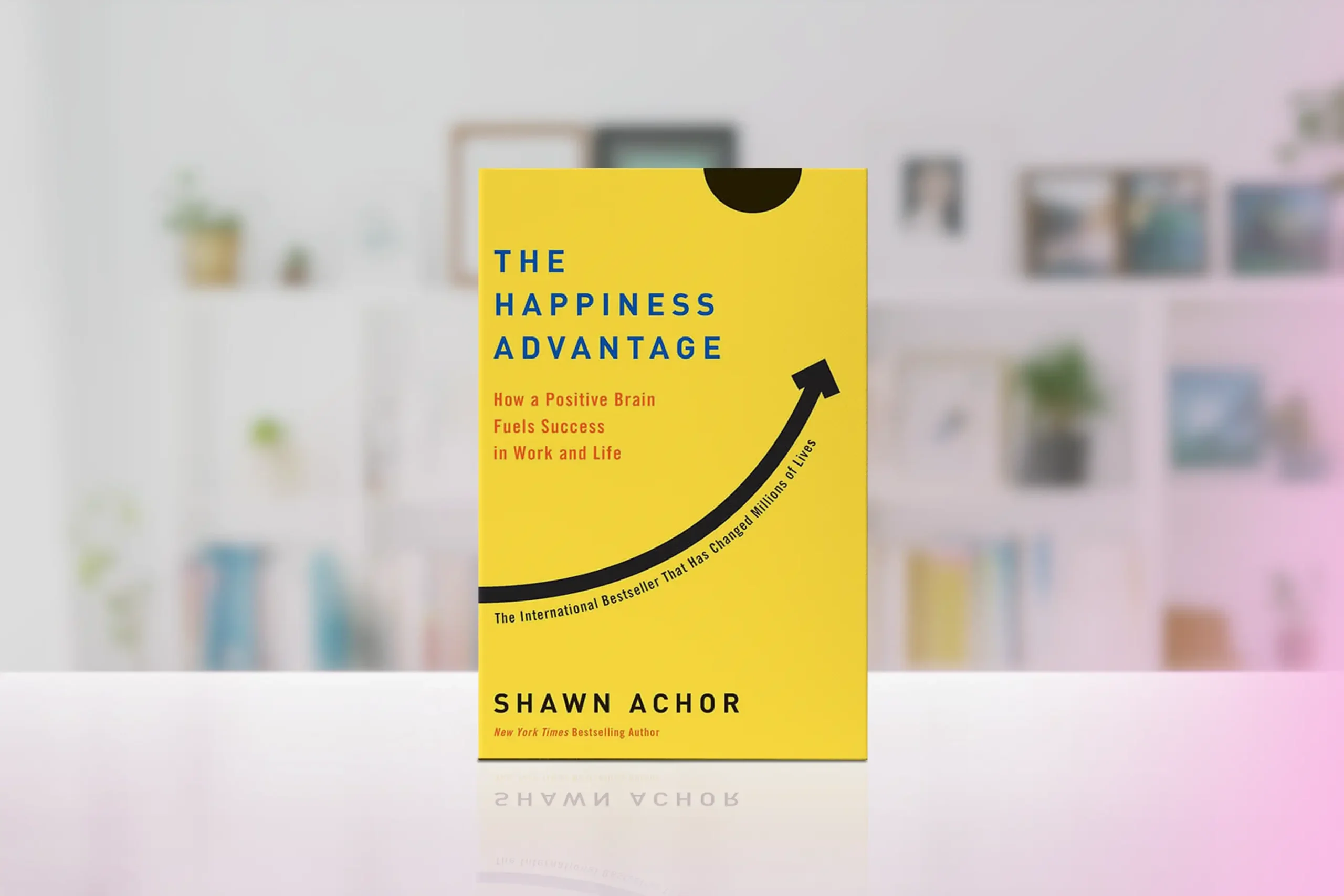Ever feel like some days shine while others just fade into the background? The truth is, happiness isn’t random—it’s built through intentional actions. Think of this as your happiness blueprint: 12 simple habits for a happier life that are backed by science and easy to implement. With consistent practice, these daily habits can transform your routine and help you create a more fulfilling, joyful life.
Inside this article:
Daily Habits
These simple habits for a happier life, are small daily practices that create the essential rhythm that supports your overall wellbeing. Think of them as the foundation stones—not glamorous, perhaps, but absolutely essential for building something lasting.

1. Get Moving
Let’s be honest—sometimes the last thing you want to do is exercise. But movement isn’t just about fitness—it’s powerful medicine for your mind that can shift your mood in minutes.
Why it’s important: According to neuroscientist Wendy Suzuki, exercise triggers the release of mood-enhancing brain chemicals that create both immediate mood boosts and long-term brain benefits. A 2022 study found that just 10 minutes of physical activity significantly improved mood states.
Try this: Just a few minutes of walking can begin shifting your brain chemistry. Start with a quick dance to your favorite song, a handful of stretches, or a brisk walk around the block. You’ll feel the weight lifting from your shoulders almost immediately.
2. Protect Your Sleep
You know that cranky, everything-is-terrible feeling after a bad night’s sleep? That’s not just tiredness—it’s your brain’s emotional regulation system breaking down.
Why it’s important: Sleep researcher Matthew Walker shows that quality rest is fundamental to emotional wellbeing. A 2020 UC Berkeley study found sleep-deprived brains show a 30% increase in anxiety levels, while well-rested brains demonstrate enhanced emotional regulation.
Try this: Create a wind-down ritual by dimming lights and putting screens away 30-60 minutes before bedtime. Even one night of improved sleep can boost your mood by up to 30%—imagine what a week of good sleep could do.
3. Practice Gratitude
Gratitude isn’t about ignoring problems or pretending everything’s perfect. It’s about training your attention to also notice what’s going right—even on difficult days.
Why it’s important: Psychologist Robert Emmons’ research shows that regular gratitude practice significantly increases happiness. Participants who kept gratitude journals for three weeks reported 25% higher life satisfaction scores than control groups.
Try this: Each evening, write down three specific moments from your day that brought a hint of joy or relief, no matter how tiny. The more detailed, the better—”the perfect temperature of my morning coffee” works better than “my coffee.”
Weekly Routines
These weekly practices help you maintain balance and connection in your increasingly demanding world. They’re the practices that prevent daily stressors from accumulating into something overwhelming.

4. Clear Your Space
Ever notice how a cluttered desk makes your thoughts more jumbled too? Your physical environment and mental state are deeply connected—when one is messy, the other tends to follow.
Why it’s important: Princeton Neuroscience Institute research shows that visual disorder competes for attention and drains mental resources. Participants working in cluttered environments showed increased stress hormones and decreased performance.
Try this: Don’t tackle your entire living space. Choose one small area that’s been stressing you out and spend just 5-10 minutes transforming it. Nearly 90% of people report feeling noticeably calmer after organizing a previously cluttered space.
5. Prioritize Connection
In our increasingly digitized world, quality relationships affect everything from your immune system to your mental health to how long you’ll live.
Why it’s important: Harvard’s 80-year study found that close relationships were the strongest predictor of happiness throughout life. As researcher Robert Waldinger notes, “Good relationships keep us happier and healthier, period.”
Try this: Send a voice message instead of a text to someone you care about. Schedule a 20-minute coffee or phone date with someone who energizes you. Studies show that just 6 hours of social time per week dramatically increases wellbeing—less than an hour a day.
6. Step Into Nature
Natural settings have a remarkable power to restore mental balance and dissolve stress almost immediately. Even brief exposure to green spaces shifts your nervous system from “fight or flight” to “rest and digest.”
Why it’s important: Research found that just 20 minutes in nature significantly lowers stress hormone levels. A Stanford study found that walking in nature decreased activity in brain regions associated with rumination—the cycle of negative thoughts linked to depression.
Try this: Find a nearby patch of nature for a 15-minute “green pause” where you can fully engage your senses. According to research, spending time in nature lowers stress hormones as effectively as 45 minutes of meditation.
Monthly Practices
These monthly habits build deeper meaning and perspective that sustain you through life’s inevitable challenges. They help you zoom out from daily concerns to see the bigger picture of your life.

7. Give to Others
You know that warm glow that spreads through your chest when you make someone else’s day a little better? Turns out, generosity might be the most reliable happiness hack available.
Why it’s important: Research shows that helping others activates reward pathways in the brain. Researchers found that spending money on others predicted greater happiness than spending it on oneself. Brain imaging studies show the brain’s reward center activates more strongly when giving than receiving.
Try this: Choose one simple way to give this month—it doesn’t require money or massive time commitments. Research shows that acts of kindness create happiness boosts that last up to three days—making generosity one of the best happiness investments available.
8. Spend Time Alone
In a world of constant connection, there’s something surprisingly powerful about choosing to be alone with your thoughts. Solo time creates space for the self-discovery that gets crowded out in the daily rush.
Why it’s important: Just 15 minutes of solitude can lower high-arousal emotions such as anxiety and excitement, increasing calmness and relaxation. This emotional “deactivation” effect helps people self-regulate their feelings and reduces stress levels. People who enjoy solitude tend to be more creative and report higher life satisfaction.
Try this: Take yourself on a “solo date without your phone” doing something you enjoy without the constant ping of notifications. Studies show that people who spend at least 2 hours a month in meaningful solitude report 23% higher levels of clarity about important life decisions.
9. Shift Negative Thinking
This isn’t about pasting a smiley face over legitimate problems. It’s about recognizing when your brain is stuck in an unproductive negativity loop and gently redirecting your attention.
Why it’s important: Neuropsychologist Rick Hanson’s research shows our brains have a built-in “negativity bias.” Negative experiences are like Velcro to our brains—they stick easily—while positive experiences are like Teflon, quickly sliding away.
Try this: When caught in a worry spiral, take 30 seconds to gently redirect your attention. Create a quick mental list of three things going relatively well right now. Feel your breathing slow and your shoulders relax as your focus shifts.
Yearly Reflections
These annual practices provide the bird’s-eye perspective needed to ensure your life aligns with what truly matters to you. They’re the compass checks that keep you from wandering off your authentic path.

10. Reflect on Your Life
When was the last time you paused to look at the bigger story of your life? This annual practice is like checking your map to make sure you’re still heading toward a destination you actually want to reach.
Why it’s important: A Harvard Business School study found that employees who spent 15 minutes reflecting on lessons learned performed 23% better than non-reflecting counterparts. Research shows that systemic reflection (a holistic, impartial analysis of one’s life) correlates positively with authenticity, personal growth, and satisfaction with quality of life and enhances self-awareness and life satisfaction.
Try this: On your birthday or another meaningful annual date, set aside just 30 minutes with a journal. Imagine meeting your past self from a year ago—what would surprise them about your life now? What would make them proud? People who practice annual reflection report 34% higher levels of meaning and purpose.
11. Rethink Your Goals
Let’s be honest—sometimes the goals that once motivated us now feel more like obligations. Or they were never really ours to begin with, but things we thought we should want based on others’ expectations.
Why it’s important: Research shows money offers stability, but its effect on life satisfaction is smaller than expected—especially since low income causes less unhappiness than people assume. Studies show people consistently overestimate how much happiness achievements like wealth will bring.
Try this: Review your current goals by asking: “If no one else would ever know about this achievement, would I still want it?” Research shows that people who pursue intrinsically motivated goals show 55% higher persistence and significantly greater wellbeing.
12. Care for Your Whole Self
Your mind and body aren’t separate systems—they continuously influence each other. Preventive healthcare creates a foundation that supports every aspect of your life, from cognitive function to emotional resilience.
Why it’s important: Research that maintaining a strong mind-body connection is key to overall health and well-being. Studies found that preventive health behaviors were associated with both reduced illness and improved psychological wellbeing.
Try this: Schedule your essential health check-ups for the year in advance, treating them as non-negotiable appointments with yourself. People who engage in regular preventive healthcare report 42% fewer days of poor mental health annually.
The Journey to Happiness
Remember, wellbeing isn’t about perfection. It’s about building a sustainable relationship with yourself that helps you flourish, even during challenging times. Small, consistent actions—like simple habits for a happier life—have more impact than occasional grand gestures. These daily habits for happiness form the core of any lasting change, and they’re part of your personal happiness blueprint.
As positive psychology founder Martin Seligman notes, “Happiness is about building meaning, engagement, and positive relationships.” By focusing on science-backed happiness tips and habits that boost wellbeing, you’re not chasing some distant ideal—you’re learning how to be happier in the here and now.
What small wellbeing habit could you start today? Even two minutes of intentional care can shift your experience in meaningful ways. The journey to happiness isn’t about arriving at a destination—it’s about practicing ways to improve your mood, one simple habit at a time.





